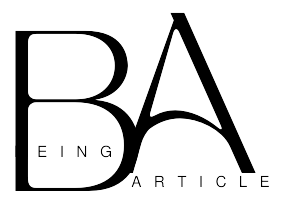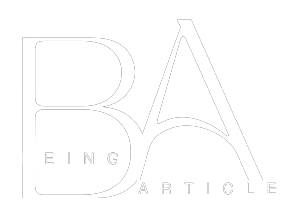How To Ask Price Of A Product?
Asking the price of a product can sometimes feel awkward or uncomfortable, especially if you’re unsure how to go about it. Whether you’re shopping for a new piece of clothing, a car, or even a house, it’s essential to approach the situation with confidence and respect.
In this article, we’ll review some essential tips for asking about a product’s price and making the process as comfortable and straightforward as possible.
Be Polite
When asking about the price of a product, it’s essential to be polite and respectful. It’s important to remember that the person you’re speaking with is likely just doing their job and is not responsible for the product’s price. However, being polite can help ensure a positive interaction and make it more likely that you’ll get the information you need.
You could say something like: “Excuse me, could you tell me how much this product costs?” or “I’m interested in purchasing this item. Can you tell me the price?”
Provide Context
If you’re in a store or showroom, providing some context for why you’re asking the price is often helpful. This can help the salesperson understand what you’re looking for and ensure they’re giving you the correct information.
You could say something like: “I’m interested in purchasing this item, but I want to make sure it’s within my budget,” or “I’m just curious about the price of this product.”
Ask For The Price Range
If you’re not sure about the specific price of a product, it’s often helpful to ask for the price range instead. This can give you a general idea of how much the product costs and help you decide whether it’s within your budget.
You could say something like: “Could you tell me the price range for this product?” or “What’s the price range for products in this category?”
Ask about Discounts Or Deals
Suppose you’re interested in purchasing a product but want to ensure you get the best deal possible. In that case, it’s okay to ask about discounts or deals. Many stores and businesses offer promotions or sales, and it’s always worth asking if any are available.
You could say something like: “Is this product currently on sale?” or “Are there any discounts available for this item?”
Be Prepared To Negotiate
In some cases, the price of a product may be negotiable. This is often the case when purchasing a large ticket item, such as a car or a house. If you’re interested in negotiating the price, it’s essential to do your research and be prepared with your arguments.
You could say something like: “I’m interested in purchasing this car, but I’m not sure the price is within my budget. Is there any room for negotiation?” or “I love this house, but I’m not sure I can afford the asking price. Would the seller be willing to negotiate?”
Be Respectful
Whether you’re negotiating or simply asking for the price, being respectful and considerate is essential. Remember that the person you’re speaking with is likely just doing their job. Being rude or demanding will only make the interaction more uncomfortable.
You could say something like: “Thank you for your help. I appreciate you taking the time to give me this information” or “I understand if the price is non-negotiable. Thank you for your time.”
Additional TipsFor Asking The Price Of A Product
- Be clear about what you’re looking for: If you’re not sure about the specific product you’re interested in, it can be helpful to provide some context. This can help the salesperson understand what you’re looking for and ensure they’re giving you the correct information.
- Ask for recommendations: If you’re unsure about a product’s price, it can be helpful to ask the salesperson for recommendations or similar products that might fit your budget. This can help you make an informed decision and ensure you get the best value for your money.
- Avoid making assumptions: It’s important to remember that the price of a product may vary depending on a variety of factors, such as location, seasonality, and availability. Avoid making assumptions about the price of a product based on previous experiences or what you’ve heard from others.
- Be prepared to walk away: If the price of a product is too high or doesn’t fit within your budget, it’s important to be prepared to walk away. Don’t feel pressured to purchase if you’re uncomfortable with the price. Don’t be afraid to shop around and compare prices at different stores or businesses.
- Research online: Before asking for the price of a product, it can be helpful to do some research online to get a general idea of how much it costs. This can help you avoid overpaying and can give you a better understanding of what to expect.
How To Ask The Price Of A Product? Extra Tips
If you’re a seller, you know that the price of your product is one of the most important factors that will affect whether or not a customer buys. But figuring out how to ask for the best price can be tricky.
Here are some extra tips to help you get started.
Know Your Product
One of the best ways to get a leg up on your competition is to woo your customers with an enticing proposition. The best way to do this is to take the time to understand your customer’s pain points and their budgetary limitations. The resulting strategy will yield results that are both impressive and measurable. The most exciting part of the process is that you’ll have a more informed and engaged customer base – and a better chance of making it past the sales floor. The most important step in this journey is to aspire to be an exceptional customer-centric leader in your field.
Know Your Customer
If you’re selling a product, you’ll want to know how much your customers will pay. This information will help you build a solid pricing strategy tailored to your customer’s needs and helps your business grow.
Some sellers dodge this question altogether, but it’s essential to address it in a strategic way that builds value and differentiates you from your competition. Here are some examples:
First and foremost, make sure that you’re confident in your price. This shows the buyer that you’re tuned in to their needs and is not bluffing your prices.
In addition, you should be prepared to answer their questions directly, without hesitation or deflection. This will allow you to get more information from them quickly and give you more tools to build value for your customers.
Next, be prepared to talk about the benefits of your product or service. You can do this by asking them about their main challenges and highlighting the value you offer to solve those problems.
You can also ask them if they’ve looked at other products before. This will help you determine if they’re more price-sensitive than others.
Finally, you should be able to provide them with a list of options for their budget. This can include anything from a free trial to discounts on additional items.
You’ll need to collect data on your customers’ buying habits and what they’ve previously paid for similar products or services. This can help you identify potential pinch points for your product or service, where people feel like they’re getting a bargain but are willing to pay more if they have access to more features.
You’ll also want to know if your competitor already provides the same features and benefits for a lower price than you are. That’s a big reason many entrepreneurs struggle to price their products or services competitively.
Know Your Competition
If you’re looking to sell a product, you must know the price of your competition before asking for it. This will help you determine how much your customers will pay for a product and ensure you get the best possible deal.
There are many ways to conduct competitive pricing analysis. One of the most effective is to create a table with the features, target market, and value proposition of your product and that of your competitors. In this table, you must also include each product’s price points.
Another way to do this is to use online tools. For example, SEMrush’s Traffic Analytics tool allows you to simultaneously compare the estimated traffic of up to five competitors’ websites. This will give you a great overview of your competitors’ performance in terms of traffic, their marketing strategy, and more.
The next step is to look into your competitors’ business metrics and see how they fare regarding sales, revenue, and customer satisfaction. By analyzing their website’s performance, you can understand why some companies have seen success and others haven’t.
Finally, you can also get a feel for the competition’s market share and how they deal with it. This will give you a better idea of whether or not your brand is viable in the marketplace.
You can find out about your competitor’s business by searching for their name in Google or using a search engine like Bing or Yahoo. The latter will offer you a list of the most relevant companies in your industry based on their rankings on the search engine’s SERP (search engine results page).
You can also learn about your competitor’s websites by checking their social media profiles and blog posts. This will give you a deeper understanding of their products and services, how they price their products, and what drives their customers to buy from them. It is also important to learn what your competitors are doing to stand out from their peers in the market, including their branding and communication strategies.
Conclusion
Asking the price of a product can be a simple process as long as you approach it with confidence and respect. Remember to be polite, provide context, ask for the price range, ask about discounts or deals, be prepared to negotiate, and be respectful. Following these tips can make the process more comfortable and ensure you get the best value for your money.
FAQ’s
What is the cost of a product?
How much does a product cost?
How Much Does a Thing Cost? Product costs are the expenses incurred to produce a product. These expenses include factory overhead, direct labour, direct materials, consumable production supplies, and direct labour. The price of the labour necessary to provide a service to a customer can also be considered a component of product cost.
How do you ask a price question in a survey?
What price do you consider the product to be a fantastic deal and a bargain? (Cheap, good value) At what point would you consider the product to be getting pricey but still consider purchasing it? (High/expensive side) What point would you consider the product to be excessively expensive? (Expensive enough)
What is the best way to ask about price?
Asking a question like, “Is that your best price?” will help you start negotiating. Adopt a courteous, upbeat demeanour. Face and body language are important factors. Show interest, but don’t act too eagerly so that they assume you’ll make a purchase regardless. Be nice and smile, but be ready to leave if necessary.
What does may I know the price mean?
With your phrasing, you are essentially asking whether it is possible for you to know the price and whether it is knowable; this is probably not what you really want to know.
How much does it cost or is it cost?
The appropriate response is “How much does it cost? Though intelligible, the question “How much did that cost?” is inappropriate; a (very) beginner would be expected to use this
What is selling price?
A selling price is what? The amount a buyer pays for a good or service is known as the selling price. It may differ based on the price that buyers are prepared to pay, the seller’s acceptance threshold, and how competitive the price is in relation to those of other companies in the market.



















